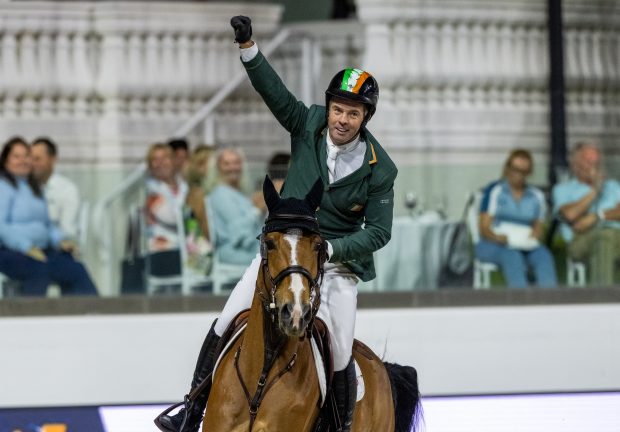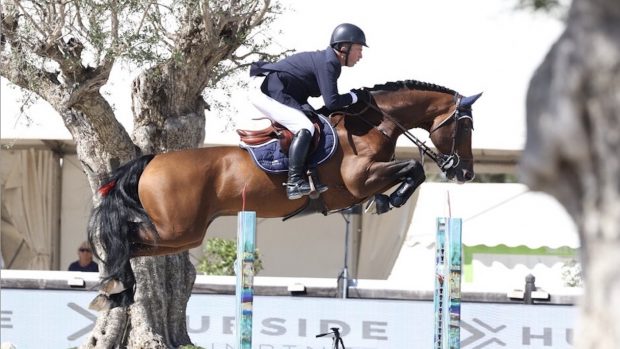Horse Sport Ireland has employed two lawyers with expertise in sports litigation to take its dispute over Rio qualification to the highest level.
A dossier is being compiled by solicitor Gary Rice and specialist Court of Arbitration for Sport (CAS) counsel David Casserly with a view to appeals to the FEI Tribunal and, if unsuccessful, to the CAS.
The Irish showjumpers lost their Rio slot to Spain by just 0.38 of a penalty in the team final at the FEI European Showjumping Championships (news, 27 August).
Cian O’Connor was clear on Good Luck over the first 10 fences, but as he made his approach to the final line, a ring steward sprinted across his path and jumped into a flowerbed.
| Related articles |
Good Luck hit the next fence — the only horse faulting here out of 40.
However, the Irish team’s protests that Cian was unfairly distracted fell foul of FEI article 233.3. The FEI said Cian had the right to stop in unforeseen circumstances but chose not to.
A growing body of opinion is now arguing that article 233.3 is designed to deal with physical impediment, not distractions. When read in conjunction with article 233.3.1, it seems to deal primarily with fences incorrectly re-set after a previous horse’s knock-down, or which fall down before they are jumped.
Furthermore, had Cian stopped and the FEI appeal committee decided he had not needed to, under rule 233.3.1 he would then have received four faults and a six-second penalty.
John Roche, FEI director of jumping and himself a former Irish international, could not recall a ground jury removing faults in a similar situation.
The rule has been applied at least twice in the UK. Markus Fuchs was leading the jump-off for the 2007 British Open, when he noticed a course-builder’s assistant behind the triple bar. Markus faulted and lost his lead.
The judges cited article 233.3 and said he should have pulled up. Markus did not protest, although organisers made up the difference in his prize money from third place to first.
Then last year, in the speed grand prix at the Royal International, Irish rider Shane Breen was jumping a fast clear when he spotted a missing plank, giving a false ground line. He made a split second decision to continue and had it down. On appeal, the judges ruled he should have stopped, although Shane says this was a “risky and illogical option”.
“There must be a change to the rules that provide little remedy to an athlete who is faced with circumstances beyond their control,” said Shane.
“Ireland not qualifying for Rio is a huge blow for the sport. Hopefully a higher court will see sense and provide a solution that the FEI cannot, or will not, offer.”




